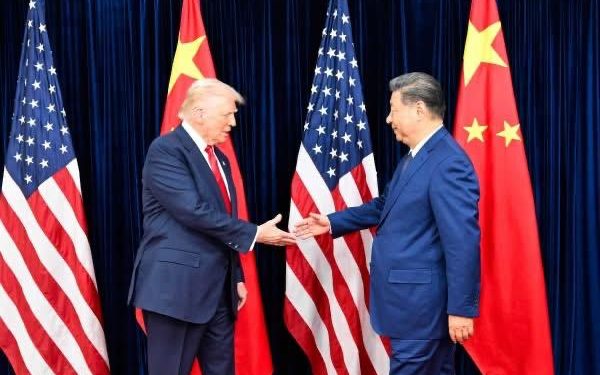By Hassan Osman Kargbo
United States President Donald Trump and Chinese President Xi Jinping have held a high-level meeting in South Korea, marking a potential turning point in trade relations between the world’s two largest economies. The meeting produced several key announcements aimed at easing ongoing trade tensions and strengthening economic cooperation.
President Trump announced that the United States will reduce the so-called “fentanyl tariff” on Chinese imports from 20 percent to 10 percent. The tariff reduction is part of a broader effort to lower trade barriers and rebuild trust following years of escalating tariffs and countermeasures between the two nations.
In response, President Xi pledged that China will begin purchasing large quantities of American agricultural products, including soybeans, sorghum, and other key farm exports. The move is seen as a boost for American farmers, who have faced significant challenges since the start of the US-China trade dispute.
“This is a positive step toward restoring balance in global trade,” President Trump told reporters after the meeting. “China has agreed to buy massive amounts of agricultural goods from the United States, and we are reducing tariffs to make trade fair and beneficial for both sides.”
In a separate statement, the Chinese government confirmed plans to make it easier for American firms to access rare earth materials — a critical resource used in electronics, renewable energy, and defense industries. The decision signals China’s willingness to open new economic channels while reducing friction in key industrial sectors.
In return, China said the US has agreed to suspend the expansion of export controls targeting foreign firms listed on the US Entity List. The controls had previously affected several major Chinese companies, limiting their access to American technology and components.
“This shows mutual respect and understanding,” said a spokesperson for China’s Ministry of Commerce. “Both sides are taking steps toward a more stable and predictable trade environment.”
While both leaders hailed the progress, they acknowledged that a final, comprehensive trade deal has not yet been signed. President Trump told journalists that a “full US-China trade agreement will be signed pretty soon,” but emphasized that negotiations are still ongoing.
Analysts say the announcements are a positive signal but caution that without a formal agreement, the progress remains uncertain. Previous attempts at reaching a lasting deal have faltered due to disagreements over technology transfers, intellectual property, and regulatory transparency.
Nevertheless, the meeting between Trump and Xi has revived optimism for improved US-China relations, with both sides expressing renewed commitment to dialogue and cooperation.













